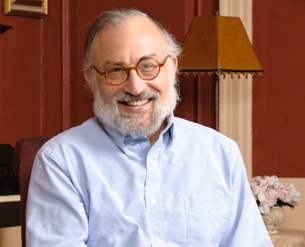“I am ideologically committed to religious pluralism and the separation of all religions from all governments. Israel falls far short of that ideal.”
The Interviewee – Rabbi David A. Teutsch (Born 1950), Director, Center for Jewish Ethics and Wiener Professor of Contemporary Jewish Civilization, Reconstructionist Rabbinical College. Born in Salt Lake City, Utah. Ordained at HUC-JIR New York. PhD, organizational ethics, Wharton School. past president, Reconstructionist Rabbinical College. Author of three volume Guide to Jewish Practice.
In your opinion, what importance, if any, does the existence of a Jewish state have to you personally and to Jewish people in general?
“Israel is responsible for the revival of Hebrew and of Jewish culture. It models what can happen when there is a country with a Jewish majority. Israel and the USA are the two largest centers of Jewish life in the world. Israel’s many accomplishments and its moral deficits shape world opinion about Jews.”
Do you feel committed in some way to defend the future existence of Israel?
“All Jews ought to look out for each other, and we should care especially about Israel, our Jewish homeland. That commitment, however, is diluted by a divergence of values that is manifest in the expansion of settlements, less than equal treatment for Arab Israeli citizens and the government support for ultra-Orthodox domination.”
Do you affiliate yourself with a specific denomination in Judaism? What is your view regarding the dominance of the Orthodox denomination in Israel religious establishment?
“I am a Reconstructionist. The political dominance of ultra-Orthodoxy in Israel makes it a far less attractive place to live or even to visit. I am ideologically committed to religious pluralism and the separation of all religions from all governments. Israel falls far short of that ideal.“
Do you feel morally responsible for Israel’s actions (such as its management of the Israeli-Palestinian conflict)?
“All Jews are held responsible for what Israel does. This is not fair, but it is the political reality. While I have consistently supported Rabbis for Human Rights, the New Israel Fund and other more progressive forces in Israel, I often find myself in a position where I am asked to defend Israeli government policies, many of which I consider indefensible. Diaspora Jews wield remarkably little influence on the Israeli government’s actions, but all of us who support the existence of Israel are morally implicated in those actions.“
In your opinion, what is the main thing Israelis fail to understand about the reality of being Jewish outside of Israel?
“Israelis who have not spent considerable amounts of time abroad living in Diaspora Jewish communities do not understand our values, the organizational structure of our communities, or what keeps us Jewish.”
How would you describe Israel’s policy (formally and in practice) regarding its relationship with the Diaspora?
“Israel has primarily seen the Diaspora as a source of money and political support. It pays lip service to listening to us, but we have relatively little influence.“
In your opinion, does Israel have an obligation to defend and help Jewish communities in need?
“Yes. Kol Yisrael areivim zeh bazeh. We must help each other.”
Have you ever been to Israel? if you have, can you summarize your impressions from Israel?
“I have visited many times, including some extended stays. Israel’s economic development and technological accomplishments are extraordinary. My connection to it as the birthplace of the Jewish people is deeply emotional. My distress about the treatment of Arabs, the gap between rich and poor, and the power of the ultra-Orthodox community grows with every visit.”
Can you tell us a bit about the Jewish community in your hometown?
“I live in Philadelphia, a Jewish community of about 350,000 with a broad array of Jewish organizations and congregations of every movement. You can find all you want here to create the kind of Jewish life you want to live.”
If you could ask the Israeli readers of this project a question, what would it be?
“What can you do to change the direction of the Israeli government on economic and social issues, on the settlements, and on efforts toward regional peace?”

